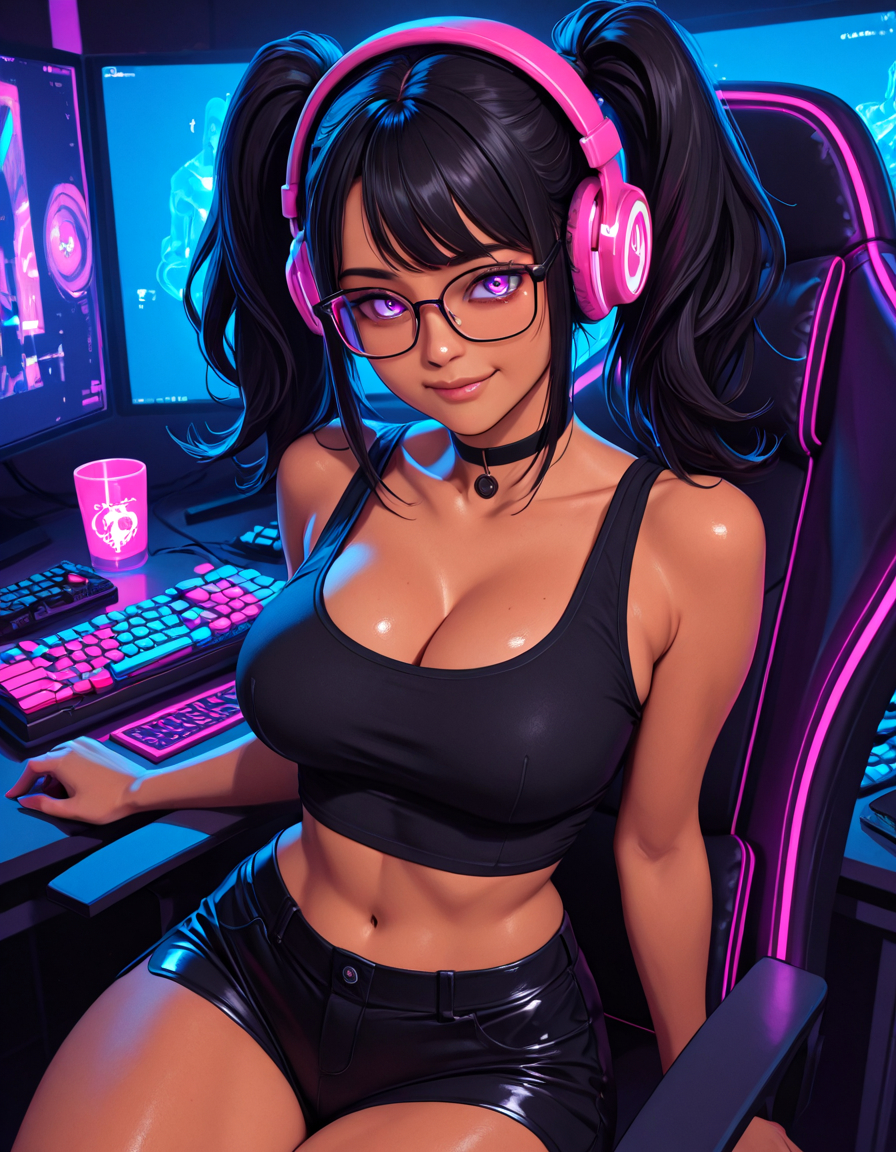
The Great GPU Wars and the Future of Gaming Hardware
The Battle for Graphics Dominance
Okay gamers, let me just start by saying the hardware landscape is getting absolutely wild right now. Like, we’re talking drama that makes my favorite anime look tame. The big news is NVIDIA dropping $5 billion on Intel – that’s like finding out your two rival senpais are suddenly holding hands and going to karaoke together. But what does this actually mean for us?
So Intel’s been struggling with their Arc GPUs for a while now, and honestly? I kinda feel for them. They tried to break into the GPU market when NVIDIA and AMD were already established, which is like showing up to a party three hours late when everyone’s already drunk and making out. But now with NVIDIA’s investment, we’re looking at potential Intel CPUs with NVIDIA graphics – which could either be amazing or a complete dumpster fire.
Why This Matters to Gamers
Let’s be real – competition is what keeps prices somewhat reasonable. When AMD was struggling, NVIDIA could charge whatever they wanted. Now with Intel potentially out of the GPU game (or becoming part of NVIDIA), we might see less competition, which means… higher prices. Yikes.
But there’s another side to this. NVIDIA wants access to Intel’s x86 architecture for their SOC designs. This could lead to some seriously powerful integrated graphics solutions that might actually compete with dedicated GPUs. Imagine a world where you don’t need a separate graphics card for decent gaming performance. That would be pretty sweet.
The Performance Controversy
Meanwhile, we’ve got Randy Pitchford over at Gearbox telling everyone that Borderlands 4 performance issues are basically not real because “less than one percent of one percent” of players reported problems. Dude, that’s some serious gaslighting right there. When your game struggles on high-end hardware, maybe the problem isn’t the hardware?
This whole “premium games for premium gamers” mentality is getting old. Games should be optimized to run well on a range of hardware, not require everyone to drop $2,000 on the latest GPU just to get playable framerates. But hey, what do I know? I’m just a girl who likes building PCs and playing games.
The Future of PC Gaming
Looking at all this, plus Valve’s new restrictions on NSFW content and Steam dropping 32-bit support, we’re at a real crossroads in PC gaming. Payment processors trying to control what content we can access? UK Parliament debating whether games should remain playable after servers shut down? This is some serious stuff.
Honestly, it feels like we’re fighting for the soul of PC gaming right now. Will it remain the open platform where anyone can build whatever they want and play whatever they want? Or will it become another walled garden where corporations control everything?
Personally, I’m staying optimistic. The PC community has always found ways to innovate and work around limitations. From people using leaf blowers to clean their PCs (seriously, be careful with that static electricity!) to truckers gaming during breaks, the passion is still there.
My Take on All This
As someone who loves both the technical and creative sides of gaming, I think we need to keep pushing for openness and accessibility. Better performance optimization, more competition in hardware, and preserving our right to access the content we want.
The PC master race isn’t about having the most expensive rig – it’s about the freedom to choose what you want to play and how you want to play it. Whether you’re rocking a GTX 1660 or an RTX 5090, whether you play AAA titles or indie games, we’re all part of the same community.
So let’s keep building, keep gaming, and most importantly – keep supporting each other. The future might look uncertain, but if we stick together, we can make sure PC gaming stays awesome for years to come.